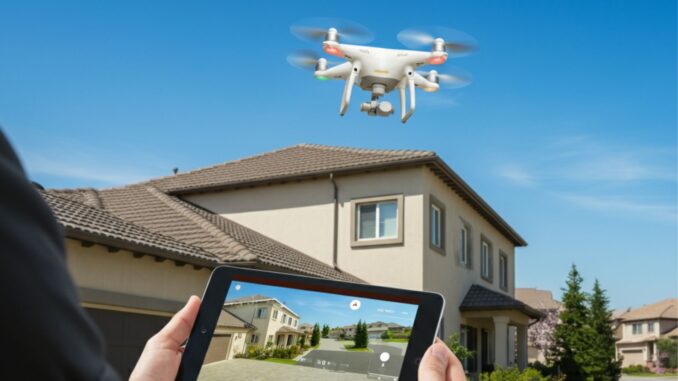
California’s insurance bill aims to balance transparency and innovation
Drones Investigating your roof? Satellites taking pictures of your backyard? It happens – and not everyone is delighted about it. Bill 75 of the California Assembly (AB 75) is under the spotlight, approaching how insurance companies use aerial images in their decision -making. Intrusive surveillance or precious innovation? Depends on who you ask.
Chronology of AB 75
The trip of the bill began in March 2025, presented by Lisa Calderon, member of the Assembly, with the support of the insurance commissioner Ricardo Lara. In May, he adopted the Assembly’s insurance committee with unanimous approval – 15 votes in favor and 2 abstentions. The legislators all seemed to agree that something should change. Quick advance until mid-July, and AB 75 is being examined by the senatorial judicial committee after having crossed the Senatorial Insurance Committee. It’s not yet the law, but it makes waves.
Key provisions in a word
AB 75 consists in giving more control to the owners. If they have passed, insurers will no longer have braking to collect aerial images without letting you know. The bill would force insurers to inform owners 30 days in advance if drones, satellites or any other air technology are used to spy on … Sorry, to assess their property.
There is more:
- The owners could request copies of all the images that insurers collect.
- Insurers would not be allowed to base decisions in photos of more than 6 months.
- In disagreement with the evaluation? The owners would have the right to request an inspection in person.
It sounds right, right? Not everyone.
Legislators say it is time
Lisa Calderon, member of the Democratic Assembly, clearly indicated – this bill concerns equity. “The owners of California pointed out that they were blind by non-renewal according to these photos”, ” She said. Imagine losing your insurance because of a photo taken months ago when a tree branch, long cut, was still on the way. It happens.
The legislature wants transparency. No more mysteries leading to surprise cancellations. More obsolete images creating headaches for owners. Calderon maintains that the owners deserve to be in the loop – and it is not wrong.
The regrowth insurance industry
But insurance companies are not delighted. Their position? Dones and satellites are effective. They save money and time, allowing insurers to quickly treat policies without costly visits in person. Allison Adey of the California Personal Insurance Federation presented it during a hearing in May. “The cost of an inspection in person varies, but varies between $ 75 and $ 100. Air imagery is a fraction. “
They also warn the stricter rules could affect the availability of policies. Insurers are based on drones to effectively assess thousands of properties. Remove this option and the process slows down. Less policies could even be offered in areas subject to fire or at high risk. It is a compromise that also has nervous consumers.
Privacy defenders want more
Do you think AB 75 solves the problem? Not exactly. Groups like the Clearinghouse for Privacy Rights believe that the bill is not far enough. They argue that insurers can still sell air images to data brokers, exposing owners at risk beyond insurance. Imagine your ownership photos shared with stalkers or crooks. Scary, right?
There is also no obligation to blur faces, neighboring properties or car license plates – confidentiality monitoring which leaves some people uncomfortable.
The owners left in the middle
For owners, this debate is personal. Stories have surfaced cancellations based on old, erroneous or misleading photos. A resident from San Francisco has received a non -renewable opinion for “damage caused by the roof” even as their roof being brand new. It turned out that the aerial image had been taken just after a storm, with nothing other than puddles in the shot.
It’s a mess. And for many, it seems that insurers make decisions from a distance, literally. “Consumers should not have to combat these mistakes,” said Josephine Figueroa, assistant commissioner in California Department of Insurance.
Find a balance
Basically, AB 75 is looking for balance. Owners should know when insurers use drone photos – and they should get a word to say if these images are correct. Insurers want to maintain low costs and high efficiency. Privacy defenders want better guarantees to prevent personal data from falling into bad hands.
Can everyone win? Difficult to say. For the moment, AB 75 continues throughout the legislative process. Whether it leads to a significant change or simply adding obstacles for both parties remains the big question.
